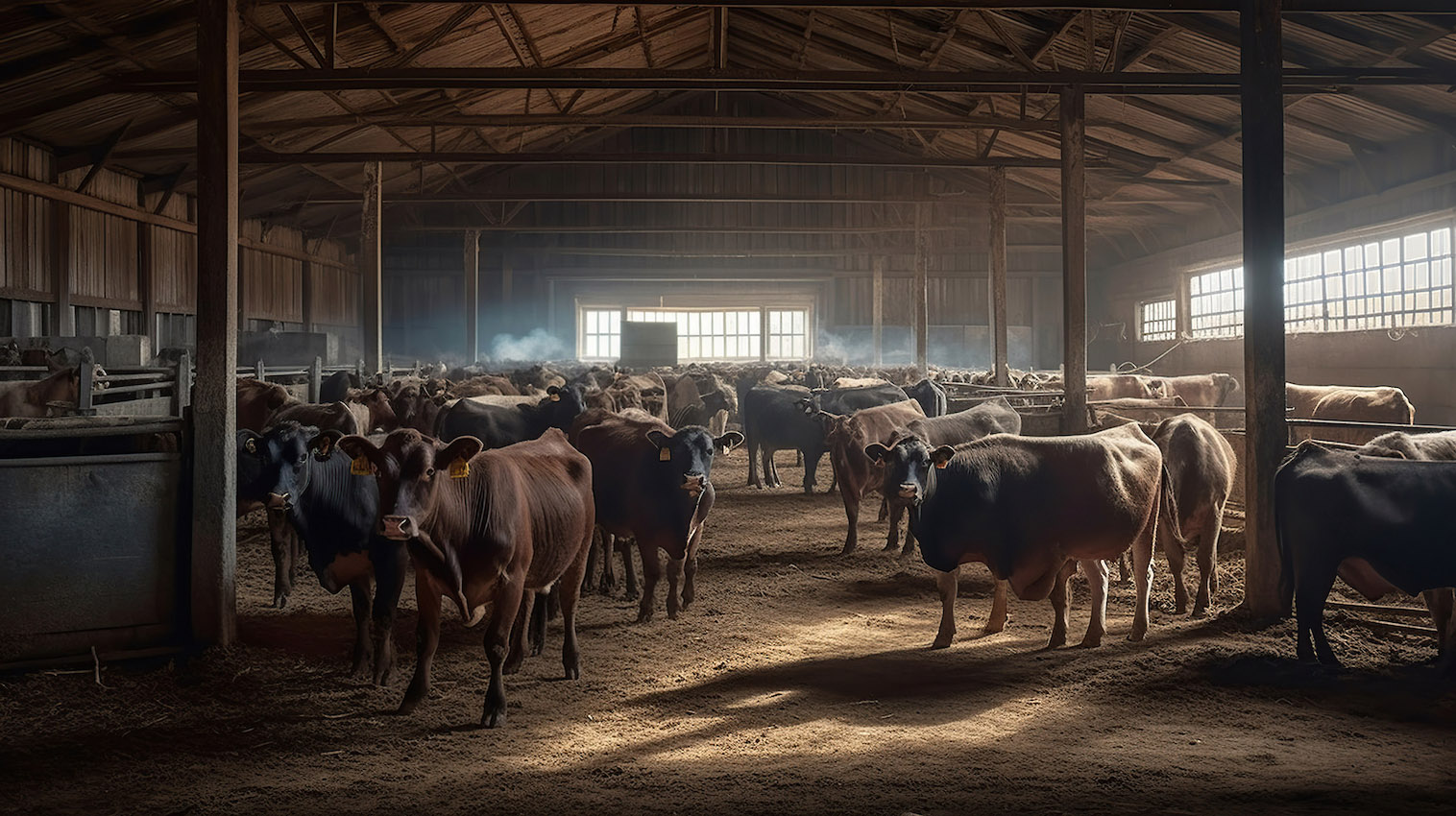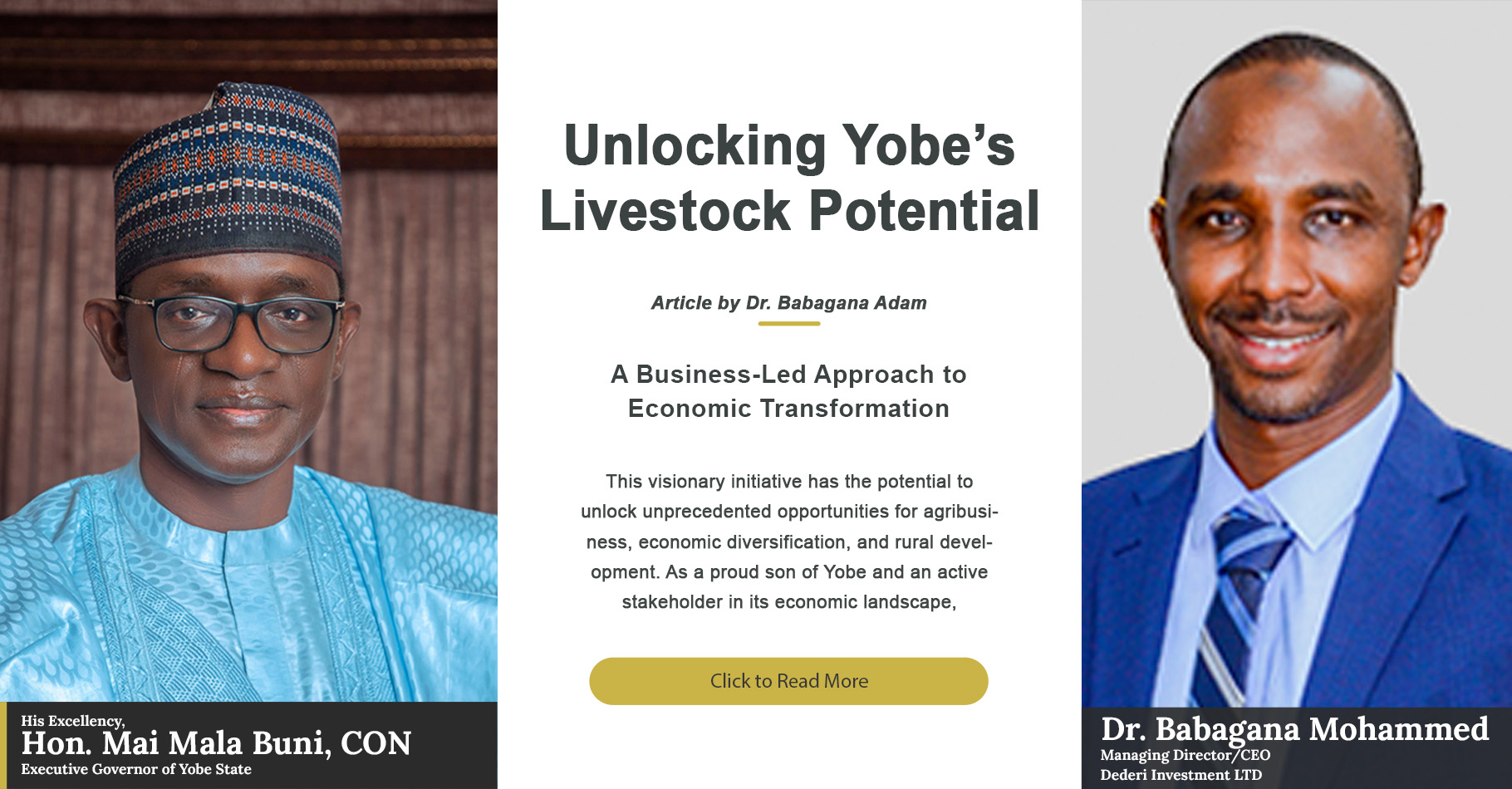The recent establishment of the Ministry of Livestock Development by His Excellency Governor Mai Mala Buni marks a pivotal moment in Yobe State’s economic trajectory. This visionary initiative has the potential to unlock unprecedented opportunities for agribusiness, economic diversification, and rural development. As a proud son of Yobe and an active stakeholder in its economic landscape, I commend this bold step towards revitalizing the livestock sector.
Harnessing Yobe’s Livestock Heritage for Economic Growth
Yobe is a state where livestock is more than an economic asset; it is a way of life. For centuries, pastoralism has shaped our culture, trade, and social structures. However, the sector has struggled with modern challenges such as climate change, land conflicts, limited veterinary services, and underdeveloped value chains. Creating a dedicated ministry presents a golden opportunity to reposition livestock as a cornerstone of sustainable economic growth and wealth creation.

Read: Yobe builds cattle ranches to grow livestock sector
Strategic Policy Recommendations: A Business-Oriented Roadmap
For the new ministry to drive meaningful impact, it must adopt strategic initiatives that will maximize the economic potential of Yobe’s livestock sector. Below are key policy directions to transform Yobe into a hub for agribusiness and animal husbandry:
1. Infrastructure Development for Modern Livestock Management
– Establish ranching zones and grazing reserves to mitigate farmer-herder conflicts and enhance productivity.
– Invest in modern abattoirs and meat-processing facilities to boost the value of livestock exports.
– Develop livestock markets with digital traceability systems to improve trade efficiency and transparency.
2. Public-Private Partnerships (PPPs) for Investment Expansion
– Attract private-sector investments in livestock feed production, veterinary services, and dairy farming.
– Partner with financial institutions to introduce livestock insurance and agribusiness financing for smallholder farmers.
– Engage private firms in large-scale livestock projects that integrate local herders into modern supply chains.
3. Value Chain Optimization and Industrialization
– Promote the processing of meat, leather, dairy, and wool to support local manufacturing.
– Establish cooperative models that enable smallholder farmers to access markets and processing industries.
– Develop export policies that position Yobe as a major supplier of livestock products across West Africa.
4. Education, Training, and Technology Integration
– Introduce vocational training in animal husbandry, modern dairy farming, and meat processing.
– Encourage research in climate-smart livestock practices to combat environmental challenges.
– Promote digital solutions such as smart farming apps for disease control and market linkages.
Read: Yobe eyes hefty IGR through livestock ministry
Economic Development: Unlocking a New Era in Yobe State Agribusiness
The livestock sector is a multi-billion-dollar industry globally, and Yobe must transition from subsistence to commercial livestock farming to harness its full potential. With the right policies and investments, the sector can:
– Increase internally generated revenue (IGR) through livestock taxation, exports, and industrial activities.
– Create thousands of jobs in farming, processing, logistics, and marketing.
– Attract foreign direct investment (FDI) by positioning Yobe as a key player in Nigeria’s livestock economy.
The private sector has a vital role to play in supporting the government’s vision. By leveraging expertise in project execution and infrastructure development, stakeholders can transform this initiative into tangible economic results.
Cultural Reflections: Modernizing While Preserving Tradition
Livestock is a symbol of wealth, prestige, and heritage in Yobe. Our Fulani and Kanuri communities have practiced pastoralism for generations, passing down valuable knowledge and traditions. Modernization should not erase these cultural values but enhance them with better systems and technologies.
By blending tradition with innovation, we can:
– Improve cattle-rearing practices while maintaining indigenous knowledge systems.
– Facilitate the transition of herders from risky migration patterns to stable, profitable livestock enterprises.
– Preserve the cultural significance of livestock while expanding its role in global agribusiness.
Conclusion: A Call to Action for Stakeholders
Governor Mai Mala Buni has taken a bold step toward transforming Yobe’s livestock sector. Now, it is time for stakeholders, investors, and business leaders to rally behind this vision.
With the right policies, partnerships, and investments, Yobe can emerge as a leader in Nigeria’s livestock economy, creating prosperity for its people while honoring its rich pastoral heritage. The future is bright, and together, we can build a thriving livestock industry that benefits all.


Leave a Reply